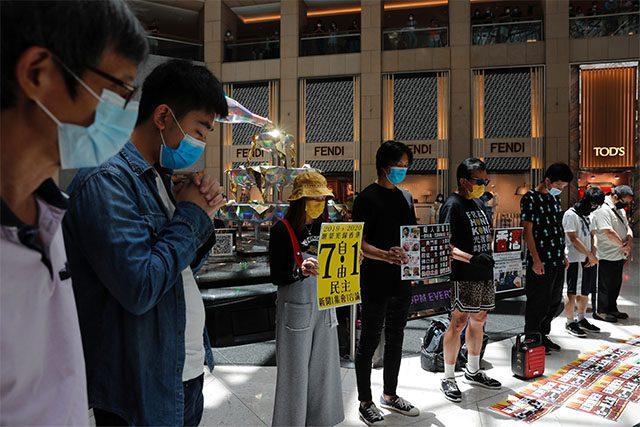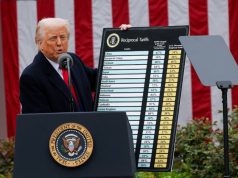
HONG KONG — China’s new security laws for Hong Kong will punish crimes of secession, subversion, terrorism and collusion with foreign forces with up to life in prison, heralding a more authoritarian era for the Asian financial hub.
The laws came into effect on Wednesday, 23 years after Hong Kong returned to Chinese rule, with many in the city fearing the legislation will crush wide-ranging freedoms promised to Hong Kong under a “one country, two systems” formula for governance.
Here’s what financial analysts are saying about the legislation:
Song Seng Wun, Economist at CIMB Private Bank, Singapore
“We have also seen plenty of money being poured into Hong Kong, especially in the secondary listings of big Chinese companies – especially over the last year though the law-and-order situation remains an issue. As long as money can be made, opportunities for wealth creation remain strong. Nothing pulls people more than if they can make money. So while there’s plenty of uncertainty in terms of what this new security law entails, the money appeal remains a key magnet and Hong Kong will continue to see those flows of IPOs.”
Scott Kelly, DNR Capital Portfolio Manager, Brisbane
“For a few years, geopolitical factors have created market volatility and have generally been negative for sentiment. This latest development is another move in a long game for China. It brings higher risks for companies operating in the region, however it has been well-flagged and is arguably already priced in.”
Chris Weston, Head of Research, Pepperstone, Melbourne
“Markets may be looking at it more from a humanitarian perspective, but not really from a financial one. At the end of the day, the Chinese also want the Hong Kong capital market to flourish. It is not something I am going to trade on so much.” IMRE SPEIZER, WESTPAC MARKET STRATEGIST, AUCKLAND
“The laws, combined with the change in Hong Kong’s status from the U.S., is another development in the U.S. and China cold war that has been going on for a long time. It has not taken people by surprise but it’s an unwelcome development. It’s one of a number of geopolitical factors which is a negative for some asset classes now.”
Michael McCarthy, CMC Markets Chief Strategist, Sydney
“Markets have been well prepared for these laws, it’s not unexpected because it has been well flagged by Beijing. Hong Kong stocks have been trading at a significant valuation discount for some time. The price to earnings ratio of the Hang Seng Index is 11 times, that is very low compared to markets around the region so stocks in Hong Kong have been at a discount. The laws are not a positive for the outlook of Hong Kong stocks, there’s been a sense of inevitability about this.”
Marc Chandler, Chief Market Strategist, Bannockburn Forex, New York
“The China law is just a formality. We knew China was going to pass the law and the U.S. has already taken some action against Hong Kong. There was some interesting work from the Peterson Institute on this. If Hong Kong would be subject to the same tariffs as China, what would that mean? The conclusion is that because Hong Kong specializes in financial services and logistics, that it won’t be affected that much by the tariffs. I agree with that. The law is merely symbolic. For the United States, this means that tensions in China and with China will persist well after the U.S. elections.”
Hasnain Malik, Head of Equity Research, Tellimer (Dubai)
“With the release of the full detail of the law, it should be clear to those in any doubt that this is not the Hong Kong they grew up in. But this tighter security environment has been on the way for many years now. The difference is that U.S. and China relations are far worse and this could be used as a pretext to impede the role of Hong Kong as a finance hub.”
—Reporting By Scott Murdoch in Hong Kong, Shriya Ramakrishnan in Bengaluru and Anshuman Daga in Singapore; Editing by Michael Perry, Robert Birsel









